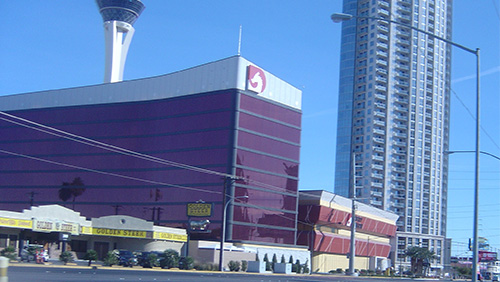When the Lucky Dragon was conceived as a future part of the Las Vegas landscape, it was designed with a very specific mission – to attract Asian gamblers. In order to help realize the dream, its developers went after Asian whales, promising residency in the US in return for sizeable investments through the country’s EB-5 visa program. Soon after its grand opening in 2016, it became obvious that the dragon was never going to roar and was forced out into the distant fields where casino dragons go to die. Unfortunately for those investors, they didn’t receive their residency or their investments and are now going after the developers to try to recuperate their funds.
 The Lucky Dragon was forced into foreclosure and seized by Snow Covered Capital, its primary creditor, last year. After several failed attempts at finding a new owner, the venue finally found someone willing to purchase the property last month. It sold for just $36 million – pennies against the $160 million the casino cost to build and not enough to cover the amount that is still due the investment company.
The Lucky Dragon was forced into foreclosure and seized by Snow Covered Capital, its primary creditor, last year. After several failed attempts at finding a new owner, the venue finally found someone willing to purchase the property last month. It sold for just $36 million – pennies against the $160 million the casino cost to build and not enough to cover the amount that is still due the investment company.
The investors had to put up at least $550,000 in order to qualify for residency under the EB-5 program. 40 of them are now suing, arguing that the developers “fraudulently induced” the investments out of them.
The developers are looking at another lawsuit in addition to the investors’ suit. A high-rolling gambler and casino investor out of British Columbia, Jason Chen, is suing to recuperate a $400,000 deposit he had given to lease the casino only a month before it permanently shut off the lights. The lawsuit targets Andrew Fonfa of ASF Realty & Investments, one of the principle investors, who led “coordinated efforts” to obtain funds through “deceit and misrepresentation.” Fonfa acted as the Lucky Dragon’s chief financial officer and general manager when the venue first opened.
Snow Covered Capital is suing, as well. The firm is attempting to squeeze out any money it can in order to recover at least some of the money it put in.
The Lucky Dragon was anything but lucky from the start. It faced problems from the beginning and was only able to earn about 20% of its forecast revenue in the first 18 months of operation. The American dream became an American nightmare for a large number of investors, some of whom put in everything they owned.